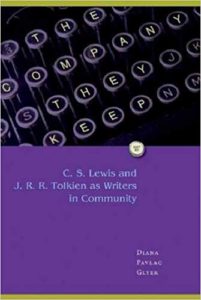I met with my writers group yesterday. Though only a few of us were able to make it, the morning went well. I went in with the first eight pages of my second novel, a manuscript I was stuck on. I have written 42,000 words on it, but I feel stuck in the middle of the story. When I produce new writing on it, it feels like pushing a heavy cart through mush.
My peers, reading it for the first time, saw things in it that I’d stopped seeing. What I appreciated was their attention to all levels–even to phrasing and to grammar–but especially their most focused attention on the more crucial elements of my writing: what was I trying to accomplish in this draft?
Writing groups can be good, bad, or indifferent. They can begin as excellent opportunities to help us with our work but over time become less effective. In one group, for example, the first few years I participated in it were great. I learned a great deal about what my ideas were and how I wasn’t always effective at getting them across. After a few more years, though, the group became a place where my friends were reading me rather than my writing. That meant that they wouldn’t always call me on vagueness. Instead, they would tell me that I was just being subtle. The trouble was that I really needed to be called out for pale, bloodless writing.
What happened yesterday was helpful, though. My peers got my ideas and followed up on what the implications of them could be. They speculated on what this opening would lead to. In a word, they resonated with my ideas. This is a term used by Karen Burke LeFevre in her book Invention as a Social Act, and by Diana Glyer in her scholarly work with the group known as the Inklings (J.R.R. Tolkien, C.S. Lewis, and Charles Williams peopled this group).
 In two works on the Inklings, The Company They Keep and Bandersnatch, Glyer looks at how these fellow writers performed in different roles as they read one another’s work. Resonating, one of the terms, is not merely a form of praise or encouragement. It is much more rooted to the ideas in ones work. The resonator fully hears and responds to the idea and allows the writer to hear fully what the idea is and has potential for.
In two works on the Inklings, The Company They Keep and Bandersnatch, Glyer looks at how these fellow writers performed in different roles as they read one another’s work. Resonating, one of the terms, is not merely a form of praise or encouragement. It is much more rooted to the ideas in ones work. The resonator fully hears and responds to the idea and allows the writer to hear fully what the idea is and has potential for.
For me, resonating happens rarely in a group. I value it, though, when it is sincere. Other aspects of good peer interaction can include informed criticism and questioning. Both are attempts to take a writer seriously.
Yesterday, when my peers resonated with my work, I felt myself drawn to really reworking it and returning to it in a fresh way. I felt new purpose with it. I will certainly clean up phrasing, grammar, and syntax. I will certainly straighten out some of my contradictions in it. But this came not from having them pointed out to me, but from having my ideas and my story reaffirmed as one worth working on and reading.
Here’s to the resonators!
What do you look for in peer group interaction? What most helps you?